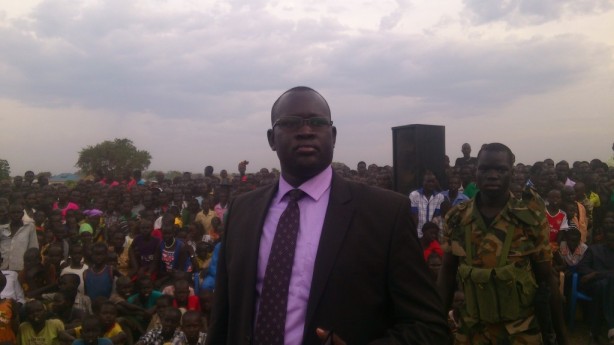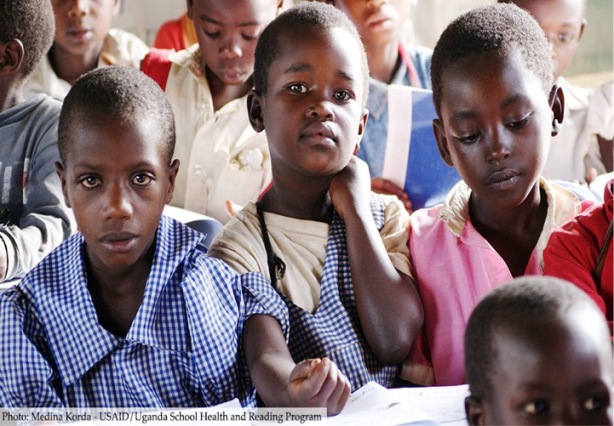By Deng Kur Deng, Pennsylvania, USA

Bor Mayor, Nhial Majak Nhial, addresses IDPs in Nimule – March 2, 2014.
March 30, 2016 (SSB) —- Many people define Bortown as a “key town” and also as a “historical city” in South Sudan, and as such, we must afford it certain rights and our respect. Under the South Sudanese government, Nhial Majak became the first Mayor of Bortown from early 2012 until 2015. Even with his appointment and the recommendation from high level leaders, Nhial also had a strong base among young people abroad and at home.
After Nhial stepped down, there has been uproar among those who are interested in filling his shoes. Personally, I don’t know exactly what procedures were followed to bring Nhial on board as Mayor, so I will not speculate about how that process works. But in terms of the candidates themselves, I feel much more entitled to speak my mind. We have heard many recommendations made by various individuals and even communities endorsing certain people, but we have yet to hear what they are basing their recommendations on. But there is one thing I am certain about: Even if you, your mother, and your father all agree that you should be the next Mayor, you must also know that these three votes of confidence are not enough to get you into office. This is a serious position, and it should only be pursued by an individual who takes it seriously.





The Future of South Sudan: The dashing hope of the bread of freedom
Posted: March 30, 2016 by PaanLuel Wël Media Ltd. in Columnists, Commentary, Contributing Writers, Opinion Articles, Opinion Writers, ReportsThe Future of South Sudan: Many South Sudanese had hope that it is now a country where everyone will finally enjoy the bread of freedom
By Ayuen Garang Ajok, Washington DC, USA
Celebrating the 4th anniversary of South Sudan’s independence
Abstract
March 30, 2016 (SSB) —- This paper is analyzed the current political implications in South Sudan. It also analyzed problems that are affecting the people of South Sudan, and the role of South Sudanese political elites. This paper will also determine factors that are confronting the Republic of South Sudan and the sources of recent conflict that broke out on December 15, 2013 between SPLA/M and Dr. Riek’s rebel group in South Sudan.
The Republic of South Sudan (RSS) gained its independence on July 9, 2011 through the act of self-determination. When South Sudanese voted for their independence through referendum, nearly 99 percent of South Sudanese overwhelming voted for autonomy of their country.[1] After independence, the RSS was recognized as fifty-fourth state in Africa and 193rd member of the United Nations (UN).
Concretely, after South Sudan referendum, one might have drawn to argue that the facts that South Sudan was finally free as a nation, South Sudan will forge a high level of stability in which South Sudanese will be free from conflict that have devastated their country after 22 years of conflict that came to an end on July 9th 2011.[2] Precisely, in order for one to make such assumptions, it is important for one to disregard potential source of conflicts in South Sudan. This paper will looks at the roles Kiir’s administration played in the conflict that is tearing the nation of South Sudan apart.
(more…)
Share this: